Tales of torture emerge as Kherson celebrates freedom from months of Russian occupation
In the liberated city, Bel Trew finds joy at President Zelensky’s triumphant visit overshadowed by stories of horror

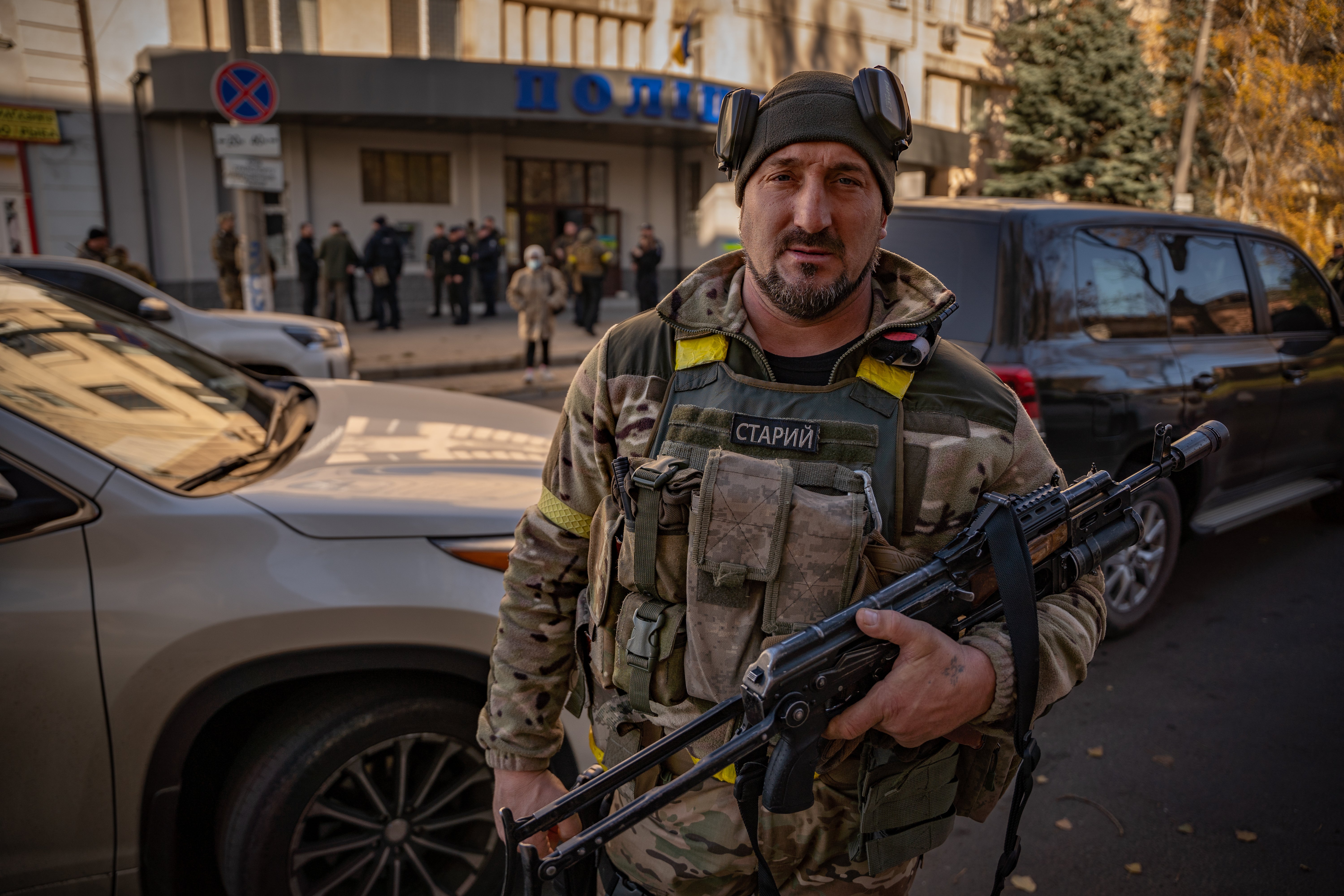
Deep in the basement of the police headquarters in Kherson, occupying Russian soldiers ran an interrogation operation, according to Ukrainian officers returning to the liberated city.
A shooting range was converted into a torture area where Putin’s forces would blindfold people and beat them so hard they could barely walk. Some of those who went in did not come out again.
Police say they have also discovered a mass grave containing the corpses of the Ukrainian territorial defence who were killed at the start of the invasion while trying to halt Russia’s advance.
As in so many recently-liberated towns in Ukraine, identifying the dead and missing will be a grim task in the coming weeks.
“We don’t know how many have been killed or disappeared, everyday people come to us looking for their missing relative and friend,” said Dennis Zaharchenko, assistant to the chief of the Kherson police department, as shelling boomed in the background.
“In one park, we found 17 bodies of territorial defence, they are part of those who tried to defend the city and were killed at the very beginning of the invasion.”
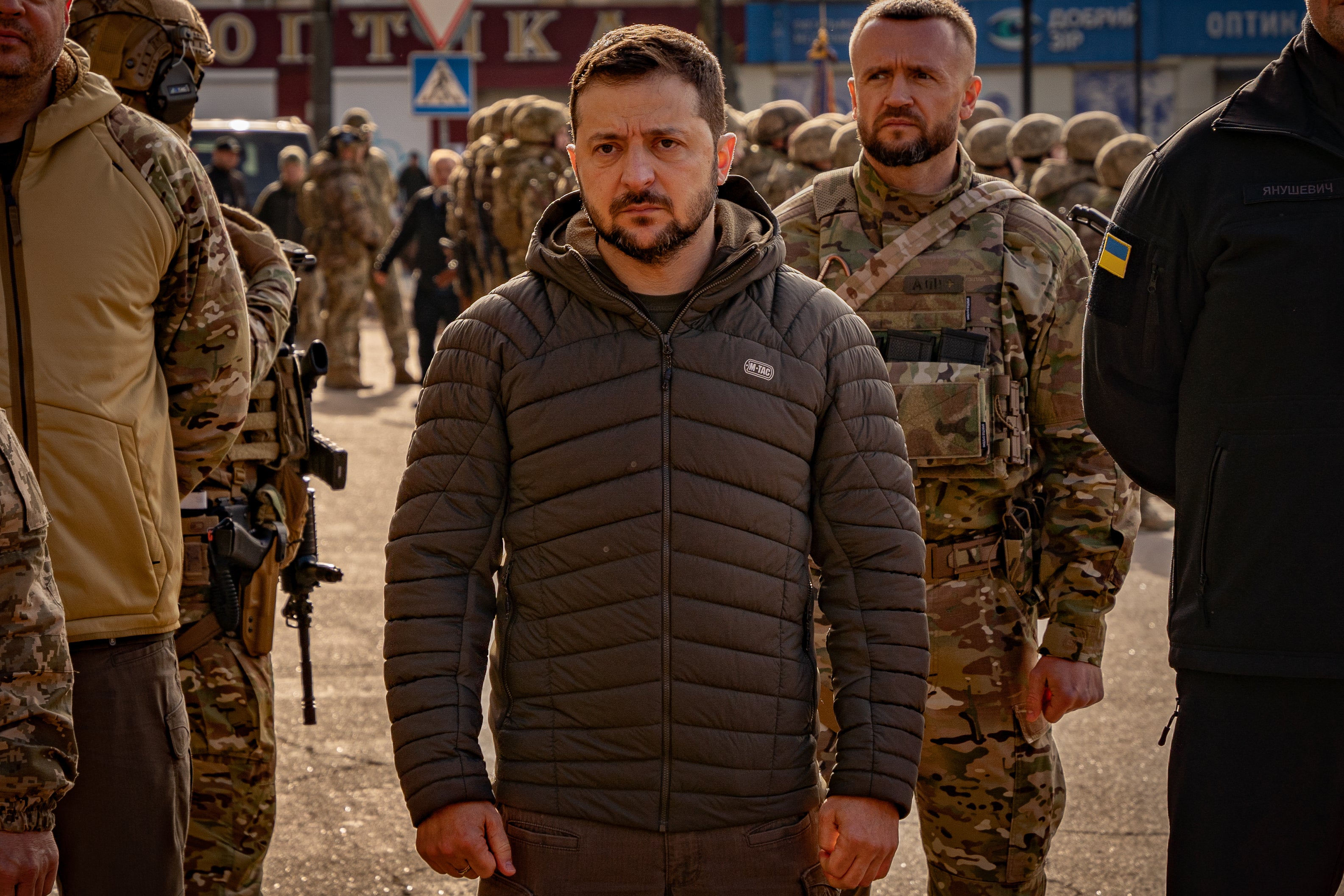
The Independent was not permitted to enter the police building because it is heavily mined and probably booby-trapped, but residents spoke of relatives and friends vanishing into the police station after being taken from their homes. Those that did return came back physically and mentally broken, they said.
And so, as Kherson reopens after eight months of occupation, a picture is emerging of a city subjected to what has apparently become Russia’s bloody playbook.
Residents gathered in the main square on Monday waving Ukrainian flags signed by soldiers and singing the national anthem, to greet president Volodymyr Zelensky who made a surprise trip from Kyiv.
Kherson was the last regional centre that Moscow had held onto since the February invasion. But alongside the celebrations over its recapture, stories were emerging about life under Russian rule.
The Kremlin has vehemently denied committing any crimes in Ukraine, and has accused Kyiv of staging atrocities to win support.
But residents of Kherson described Russia’s forces making lists of any current soldiers or veterans, police officers and officials and systematically combing the city for them – actions repeated in other occupied regions of Ukraine including Kyiv and Kharkiv.
They also jailed humanitarian volunteers, accusing them of collaborating with the Ukrainian military and giving away their positions. They rounded up people who refused to vote in September’s sham referendum on annexation; residents describe heavily armed soldiers in packs going house to house demanding people cast their ballot.
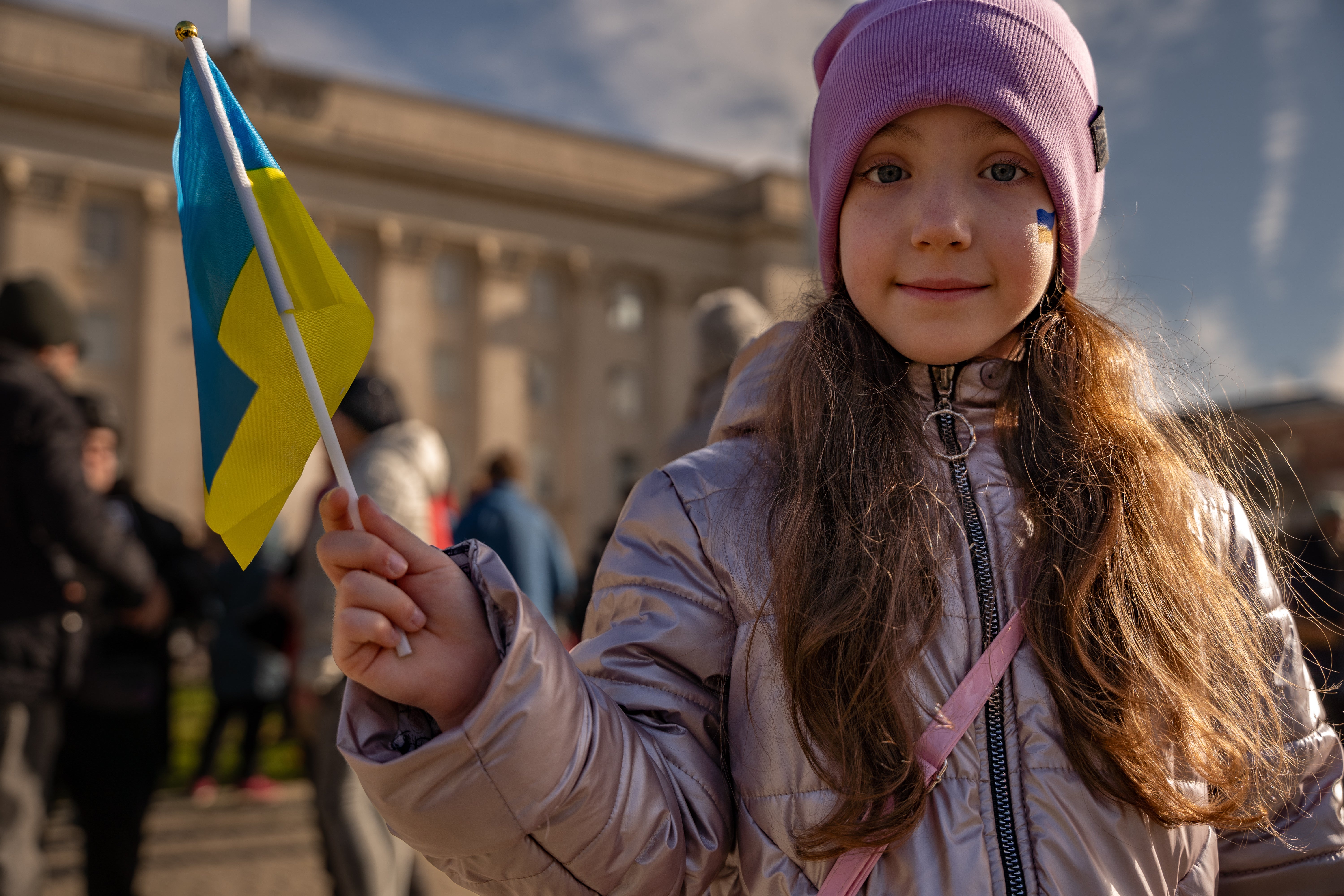
“People were trying to hide from the referendum but for us four soldiers with guns turned up at our door with a ballot box, so what can you do?” said Yuriy, 38, who was celebrating the Russian retreat with his seven-year-old daughter in Kherson’s central square.
He described how he spent the last eight months effectively in hiding as soldiers were hunting for him because of his former job as a police officer.
“The only reason I’m OK is because I am formally registered as living in a village in the Kherson region but I had moved into the city before the war.”
“Soldiers were in my village asking about me,” he continued. “Friends were not so lucky.
In front of me, the soldiers took my neighbour. That was in June and still nobody knows where she is. All we can hope is that she is still alive and in prison somewhere.”
Similar stories were repeated throughout the city, which was freed from Russian forces on Friday and is still being shelled from Russian positions located just across the Dnipro river – which marks the city boundary and cuts the wider region in half.
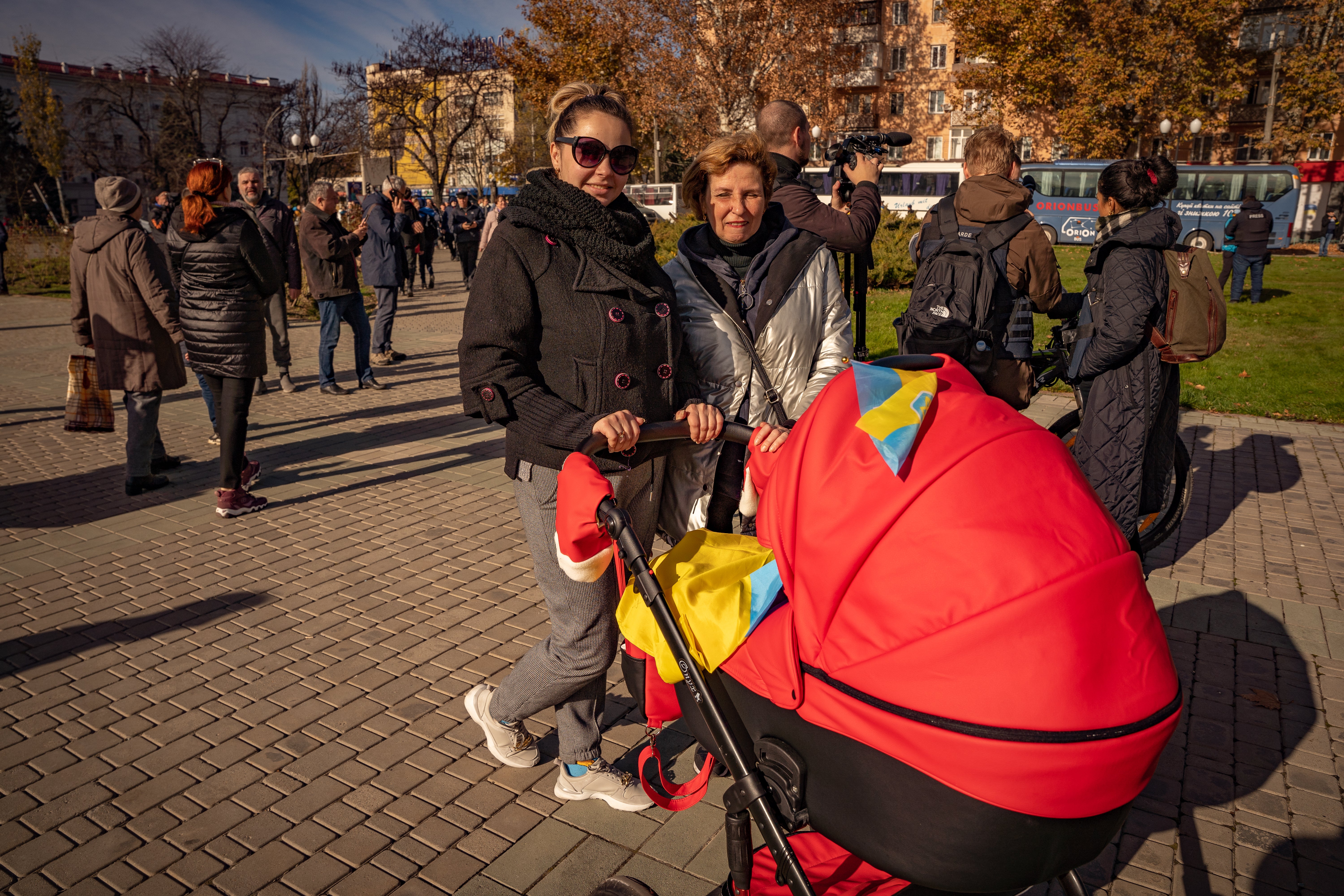
As booms sounded in the background Oleg, 40 described how two friends, both veterans of the 2014 war with Russia and its proxies in Donbas, made fake IDs to try to escape the city. Only one got through the checkpoints at Vasylivka, 200km northeast of Kherson and the last point before Ukrainian-held positions.
“One of them is still missing to this day, we are trying to work out what happened to him. The Russians were going house to house looking for people,” he said.
Viktor, 59, said four friends, all former members of the territorial defence, where taken by Russians in September and tortured for eight days in a basement.
“They said they were forced to survive three days without water, they were given just biscuits to eat,” he added. They were eventually released.
Anna, 27 who was pregnant when the Russians stormed Kherson and gave birth under heavy shelling in late September, says two young men from her neighbourhood, together with a 16-year-old boy, were stopped while they went to get supplies.
“They were just out getting food and the soldiers took them. They came back covered in bruises,” she said.
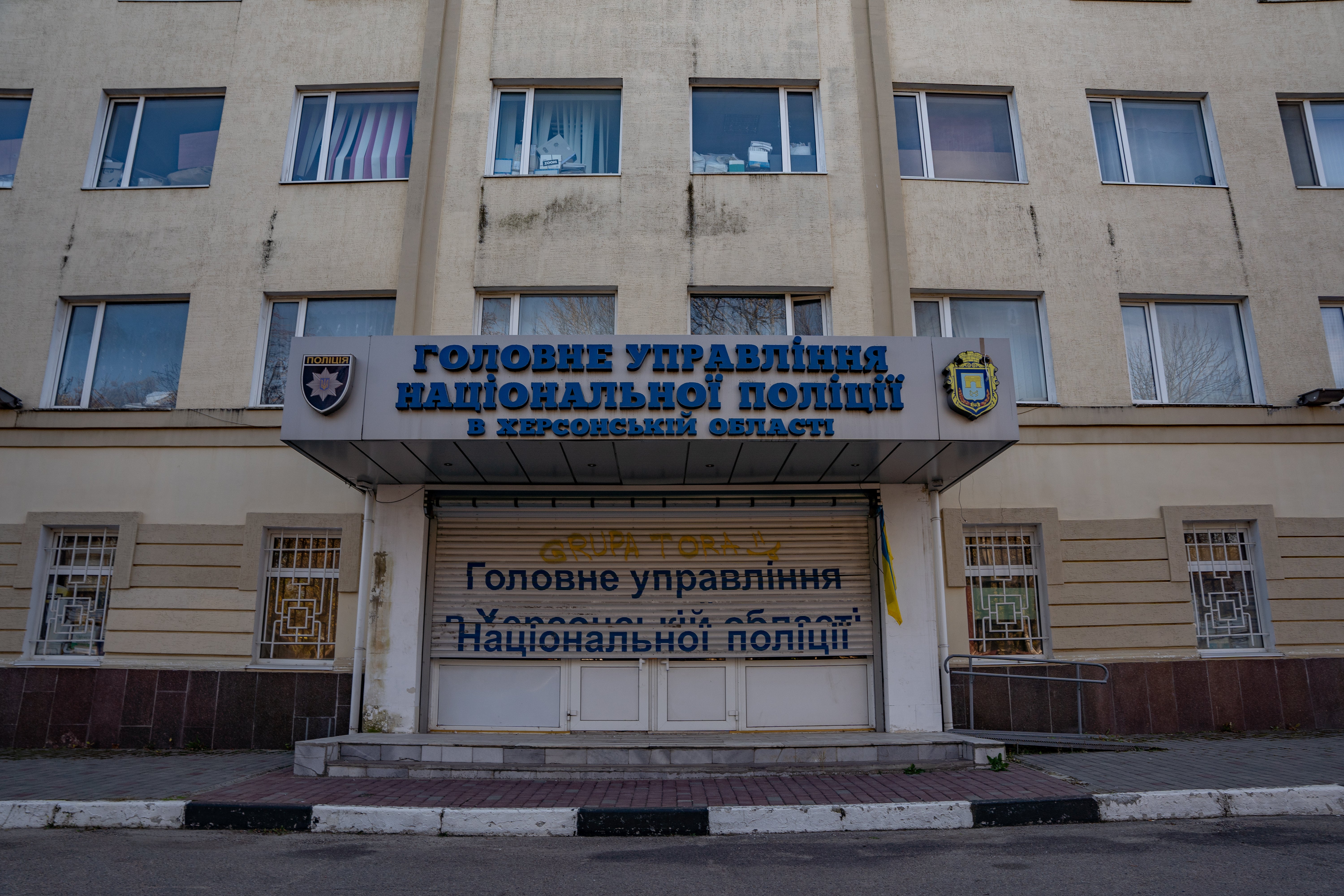
Almost everyone The Independent spoke to on Monday had a story about a friend or relative or neighbour who had been detained or was missing.
Those who were first to re-enter the city described a chaotic retreat by Russian troops across the Dnipro River. Moscow denies this.
Serhiy Volodkitch, a sergeant with police special forces, told The Independent that Russian soldiers left behind were jumping from boats and trying to swim to shore after the bridges were blown up. In one former Russian position he found a pile of Russian uniforms implying they had changed into civilian clothes.
He said there were likely to be hundreds of Russian soldiers, or citizens who collaborated with them, still left in Kherson who needed to be rooted out.
“There will be a lot of work after the victory,” he said, echoing Zaharchenko.
Back at the police station, officers set up generators for residents to charge their phones and reconnect with family and friends.
“First we are getting electricity and water sorted, and we will de-mine,” said Zaharchenko, grimly. “And then, the police can start the real work.”
Join our commenting forum
Join thought-provoking conversations, follow other Independent readers and see their replies
Comments
Bookmark popover
Removed from bookmarks